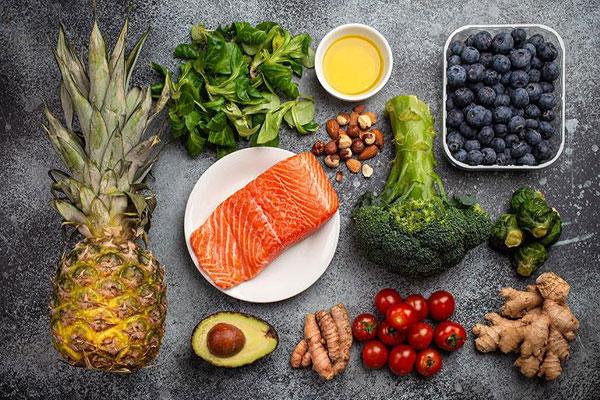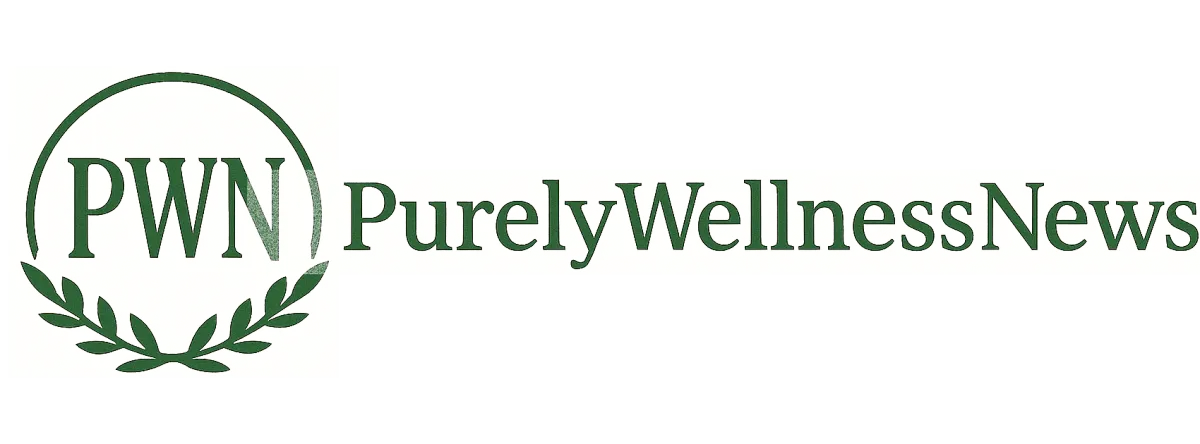
PWN Wellness Trends Sept 7 2025
Functional & Anti-Inflammatory Food Trends in the U.S.: Science, Foods, and What Consumers Actually Are Doing
Bottom line: Consumers and brands are converging on “food with function” — ingredients and patterns that reduce chronic low-grade inflammation (a driver of heart disease, diabetes, some cancers and cognitive decline). The Mediterranean-style anti-inflammatory pattern remains the best-supported whole-diet approach, while targeted functional ingredients (omega-3s, curcumin/turmeric, polyphenol-rich olive oil, prebiotic fibers, fermented foods, and certain functional beverages) show pathway-specific effects. Market growth is huge, but product quality and dose matter — and some trendy products (highly processed “fiber-maxxed” snacks, certain untested “gut sodas”) deserve caution. PMCMDPIThe Wall Street Journal
1) The biological idea in one paragraph
Chronic low-grade inflammation (“inflamm-aging”) is an underlying process linked with many chronic diseases. Diet affects systemic inflammation through (a) the types of fats consumed (omega-3s vs omega-6), (b) dietary fiber and the microbial metabolites it makes (short-chain fatty acids), (c) antioxidant and polyphenol content (which modulate oxidative stress and inflammatory signaling), and (d) glycemic load and adiposity (which themselves drive inflammatory cytokines). That’s why both whole-diet patterns and specific functional ingredients can shift inflammatory markers like hs-CRP, IL-6, and TNF-α. PMCFrontiers
2) The strongest clinical evidence (quick bullets + citations)
(These are the most load-bearing study areas you’ll want to show readers.)
Mediterranean / anti-inflammatory dietary patterns lower inflammatory biomarkers. Multiple RCTs and reviews show Mediterranean-style diets (olive oil, nuts, legumes, fish, vegetables, whole grains) consistently reduce markers such as hs-CRP and improve cardiometabolic risk. This is the best-supported whole-diet anti-inflammatory approach. PMCMDPI
Omega-3 (long-chain n-3) supplements modestly reduce systemic inflammation. Umbrella reviews and meta-analyses report statistically significant reductions in CRP, IL-6 and TNF-α with n-3 PUFA supplementation in a range of adult populations—supporting omega-3 as an adjuvant anti-inflammatory agent. Dose and EPA/DHA ratio matter. PubMedPMC
Curcumin (turmeric extract) shows anti-inflammatory effects in multiple conditions, but study quality varies. Recent umbrella reviews and meta-analyses find curcumin can lower inflammatory markers and help conditions (e.g., ulcerative colitis, some musculoskeletal and metabolic markers) — but heterogeneity in formulations and bioavailability is a big caveat. PMC+1
Functional beverages & prebiotic products are fast-growing but evidence is mixed. The functional beverage market is booming (multi-$B), with prebiotic sodas, adaptogenic drinks and gut-focused beverages expanding rapidly; some have plausible mechanisms, but many claims outpace evidence and regulatory oversight. ForbesVogue Business
Fiber is protective — but “fibermaxxing” and added isolated fibers can cause problems for some. Whole-food fiber (vegetables, legumes, whole grains) supports a diverse microbiome and anti-inflammatory metabolites. However, recent reporting warns that overconsumption of isolated fibers (inulin, oligofructose) via processed foods may cause GI upset and, in some experimental settings, dysregulated immune or liver signals — underscoring preference for whole-food fibers. The Wall Street JournalScienceDirect
3) Food & product examples (practical — what to shop & why)
Core anti-inflammatory foods (daily building blocks)
Extra-virgin olive oil — polyphenols and oleic acid (use as primary fat). MDPI
Fatty fish (salmon, mackerel, sardines) — primary dietary sources of EPA/DHA omega-3s. PubMed
Nuts & seeds (walnuts, chia, flaxseed) — plant omega-3s, fiber, minerals.
Colorful vegetables & fruits — polyphenols, fiber, antioxidant vitamins.
Legumes & whole grains — fermentable fiber for SCFA production.
Fermented foods (yogurt, kefir, kimchi in moderation) — live microbes that can support gut resilience.
Turmeric (curcumin; with black pepper or fat) — anti-inflammatory polyphenol in standardized supplement form shows benefit in many trials; culinary turmeric is useful but lower bioavailability. PMC
Functional & trending products to watch
Prebiotic sodas & gut-friendly beverages (Olipop, Poppi, big-brand launches) — convenient, but read added-sugar and fiber types. Evidence for habitual benefit is emerging but incomplete. The Wall Street JournalFoodNavigator-USA.com
Concentrated polyphenol products (extra-virgin olive oil phenolic extracts, berry concentrates) — promising mechanistically; dose and standardization matter. MDPI
Omega-3 concentrates (pharmaceutical or high-EPA supplements) — useful for elevated inflammatory markers under clinician guidance. PMC
Curcumin supplements (standardized, bioavailable formulations) — evidence is strongest with clinical-grade extracts rather than spice alone. PMC
4) Practical weekly anti-inflammatory meal plan (simple, evidence-based)
A 7-day pattern focusing on Mediterranean + functional boosts.
Daily foundation: 2 tbsp EVOO; 2–3 servings fatty fish/week; 4–5 servings veg/day; 2 servings fruit (berries preferred); 25–35 g fiber/day (from whole foods). PMC
Example day:
Breakfast: Greek yogurt + berries + 1 tbsp ground flax + handful walnuts.
Lunch: Mixed-green salad (leafy greens, cherry tomatoes, chickpeas), olive oil + lemon, grilled salmon (or canned sardines).
Snack: Apple + almond butter or a small fermented kefir.
Dinner: Lentil stew with turmeric, garlic, spinach, served with whole-grain farro and a side of roasted Brussels sprouts.
Optional: 1 serving prebiotic beverage (check sugar) or cup of green tea.
Tip: Add black pepper or a fat source with turmeric to improve curcumin absorption. PMC
5) Consumer signals & market momentum
Functional beverages are surging — major beverage brands and startups alike are launching prebiotic, adaptogenic and micronutrient-fortified drinks aimed at millennials/Gen Z. (Market forecast: large multi-billion growth.) But mainstream media and clinicians caution that many products lack robust clinical backing. ForbesVogue Business
Search & purchase behavior favors protein, fiber and gut health—consumers are actively seeking prebiotic/probiotic labels and low-sugar functional options. However, social media trends (e.g., “fibermaxxing”) show a risk of overdoing single nutrients. The Wall Street Journal
6) Clinical use cases & evidence summaries (by condition)
Cardiovascular risk: Mediterranean pattern reduces inflammatory biomarkers and improves BP/lipids; omega-3 shows modest anti-inflammatory effects—useful as adjuncts for at-risk people. PMC+1
Arthritis & musculoskeletal pain: Curcumin meta-analyses report pain and inflammatory marker improvements comparable in some trials to NSAIDs in short timeframes (dose and formulation dependent). Consider under clinician supervision. PMC
Inflammatory bowel disease (IBD): Some RCTs and meta-analyses show curcumin can help induce/maintain remission in ulcerative colitis as an adjunct. Fiber strategy must be individualized in IBD flares. PMCFrontiers
Metabolic syndrome / T2D risk: Diet patterns rich in fiber and polyphenols plus omega-3 supplementation lower CRP and other markers; clinical translation to hard endpoints is promising but complex. Frontiers
7) Risks, quality issues & what clinicians warn about
Supplement quality & dose: Many curcumin and polyphenol supplements vary widely in bioavailability and purity. Pharmaceutical-grade or clinically tested formulations are preferable when used therapeutically. PMC
Isolated fiber overload: Large amounts of added inulin/fructans in processed products can cause bloating, gas, and — in some experimental contexts — immune or liver signals; whole-food fibers are safer and more diverse for the microbiome. Recent press coverage calls this out. The Wall Street Journal
Drug interactions: Curcumin and high-dose omega-3s can have interactions (bleeding risk with anticoagulants, for example). People on medications should check with clinicians. PMC+1
Hype vs evidence: Some beverage and snack launches claim big anti-inflammatory effects without dosage or RCT evidence—read labels and prefer products with transparent ingredient sourcing and clinical studies. FoodNavigator-USA.com
8) What to tell readers / patients (practical counseling)
Start with a pattern, not a pill. Emphasize Mediterranean/whole-food pattern first— proven, safe, and broadly beneficial. PMC
Use targeted supplements prudently. Omega-3 (EPA/DHA) and a clinician-grade curcumin can be useful adjuncts for specific conditions—discuss dose and interactions with a provider. PubMedPMC
Favor whole-food fiber and diversity. Eat legumes, oats, fruits/veg, and seeds instead of relying on processed “fiber bars” or sodas. The Wall Street Journal
Watch product claims. Prefer products backed by independent clinical trials or transparent ingredient analysis. FoodNavigator-USA.com
9) Research gaps & what’s coming next
Large RCTs linking functional foods to clinical endpoints (heart attacks, dementia) are still limited — many studies focus on biomarkers. More long-term trials are needed. Frontiers
Dose, formulation and subgroup effects (who benefits most from curcumin or omega-3) require clearer guidance.
Regulation & standardization for functional beverages and supplements will likely increase as big brands scale up claims (and regulators scrutinize substantiation). Vogue Business
10) Suggested visuals for the post
Infographic: “Anti-Inflammatory Plate” (olive oil, fatty fish, legumes, colorful veg, nuts) with quick bullets.
Product grid: curated list (e.g., EVOO with high polyphenols; trusted omega-3 brand; clinically-tested curcumin extract; Olipop/Poppi as functional beverage examples) with evidence icons.
Callout box: “When to see your clinician” (anticoagulant use, autoimmune disease, pregnancy).
11) Quick reference citations (selected links)
Mediterranean diet and inflammation — systematic reviews/meta-analyses. PMCMDPI
Omega-3 PUFA umbrella/meta-analysis showing benefit on CRP/IL-6/TNF-α. PubMedPMC
Curcumin umbrella reviews and IBD RCT meta-analyses. PMC+1
Functional beverage market & trend reporting (Forbes, Vogue Business, Food Navigator). ForbesVogue BusinessFoodNavigator-USA.com
Reporting and caution about fiber-fortified products and fibermaxxing. The Wall Street Journal









